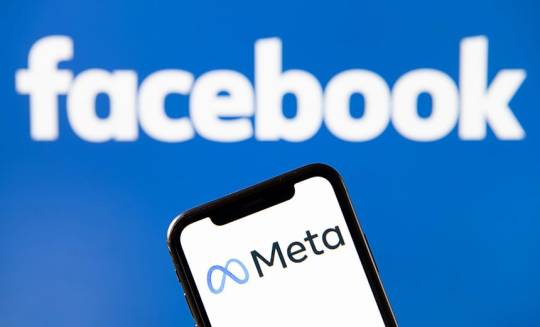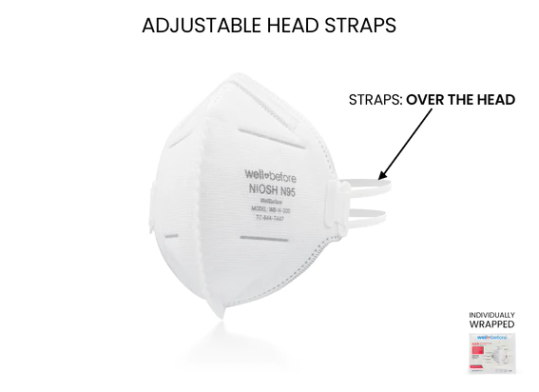#Data Protection Standards
Explore tagged Tumblr posts
Text
Sigzen Technologies: Transforming Challenges into Opportunities with Robust Backup and Disaster Recovery Solutions
In today’s fast-paced digital world, where data plays a crucial role in business operations, having a reliable Backup Solution and Disaster Recovery plan is paramount. Sigzen Technologies emerges as a leader in this space, offering cutting-edge solutions that not only safeguard critical data but also transform challenges into opportunities for businesses. Automated Backup An automated backup…

View On WordPress
#Business Continuity Strategies#Cloud Backup Excellence#Data Protection Standards#Data Security Leaders#Sigzen Tech Solutions
2 notes
·
View notes
Text
Shifting $677m from the banks to the people, every year, forever

I'll be in TUCSON, AZ from November 8-10: I'm the GUEST OF HONOR at the TUSCON SCIENCE FICTION CONVENTION.

"Switching costs" are one of the great underappreciated evils in our world: the more it costs you to change from one product or service to another, the worse the vendor, provider, or service you're using today can treat you without risking your business.
Businesses set out to keep switching costs as high as possible. Literally. Mark Zuckerberg's capos send him memos chortling about how Facebook's new photos feature will punish anyone who leaves for a rival service with the loss of all their family photos – meaning Zuck can torment those users for profit and they'll still stick around so long as the abuse is less bad than the loss of all their cherished memories:
https://www.eff.org/deeplinks/2021/08/facebooks-secret-war-switching-costs
It's often hard to quantify switching costs. We can tell when they're high, say, if your landlord ties your internet service to your lease (splitting the profits with a shitty ISP that overcharges and underdelivers), the switching cost of getting a new internet provider is the cost of moving house. We can tell when they're low, too: you can switch from one podcatcher program to another just by exporting your list of subscriptions from the old one and importing it into the new one:
https://pluralistic.net/2024/10/16/keep-it-really-simple-stupid/#read-receipts-are-you-kidding-me-seriously-fuck-that-noise
But sometimes, economists can get a rough idea of the dollar value of high switching costs. For example, a group of economists working for the Consumer Finance Protection Bureau calculated that the hassle of changing banks is costing Americans at least $677m per year (see page 526):
https://files.consumerfinance.gov/f/documents/cfpb_personal-financial-data-rights-final-rule_2024-10.pdf
The CFPB economists used a very conservative methodology, so the number is likely higher, but let's stick with that figure for now. The switching costs of changing banks – determining which bank has the best deal for you, then transfering over your account histories, cards, payees, and automated bill payments – are costing everyday Americans more than half a billion dollars, every year.
Now, the CFPB wasn't gathering this data just to make you mad. They wanted to do something about all this money – to find a way to lower switching costs, and, in so doing, transfer all that money from bank shareholders and executives to the American public.
And that's just what they did. A newly finalized Personal Financial Data Rights rule will allow you to authorize third parties – other banks, comparison shopping sites, brokers, anyone who offers you a better deal, or help you find one – to request your account data from your bank. Your bank will be required to provide that data.
I loved this rule when they first proposed it:
https://pluralistic.net/2024/06/10/getting-things-done/#deliverism
And I like the final rule even better. They've really nailed this one, even down to the fine-grained details where interop wonks like me get very deep into the weeds. For example, a thorny problem with interop rules like this one is "who gets to decide how the interoperability works?" Where will the data-formats come from? How will we know they're fit for purpose?
This is a super-hard problem. If we put the monopolies whose power we're trying to undermine in charge of this, they can easily cheat by delivering data in uselessly obfuscated formats. For example, when I used California's privacy law to force Mailchimp to provide list of all the mailing lists I've been signed up for without my permission, they sent me thousands of folders containing more than 5,900 spreadsheets listing their internal serial numbers for the lists I'm on, with no way to find out what these lists are called or how to get off of them:
https://pluralistic.net/2024/07/22/degoogled/#kafka-as-a-service
So if we're not going to let the companies decide on data formats, who should be in charge of this? One possibility is to require the use of a standard, but again, which standard? We can ask a standards body to make a new standard, which they're often very good at, but not when the stakes are high like this. Standards bodies are very weak institutions that large companies are very good at capturing:
https://pluralistic.net/2023/04/30/weak-institutions/
Here's how the CFPB solved this: they listed out the characteristics of a good standards body, listed out the data types that the standard would have to encompass, and then told banks that so long as they used a standard from a good standards body that covered all the data-types, they'd be in the clear.
Once the rule is in effect, you'll be able to go to a comparison shopping site and authorize it to go to your bank for your transaction history, and then tell you which bank – out of all the banks in America – will pay you the most for your deposits and charge you the least for your debts. Then, after you open a new account, you can authorize the new bank to go back to your old bank and get all your data: payees, scheduled payments, payment history, all of it. Switching banks will be as easy as switching mobile phone carriers – just a few clicks and a few minutes' work to get your old number working on a phone with a new provider.
This will save Americans at least $677 million, every year. Which is to say, it will cost the banks at least $670 million every year.
Naturally, America's largest banks are suing to block the rule:
https://www.americanbanker.com/news/cfpbs-open-banking-rule-faces-suit-from-bank-policy-institute
Of course, the banks claim that they're only suing to protect you, and the $677m annual transfer from their investors to the public has nothing to do with it. The banks claim to be worried about bank-fraud, which is a real thing that we should be worried about. They say that an interoperability rule could make it easier for scammers to get at your data and even transfer your account to a sleazy fly-by-night operation without your consent. This is also true!
It is obviously true that a bad interop rule would be bad. But it doesn't follow that every interop rule is bad, or that it's impossible to make a good one. The CFPB has made a very good one.
For starters, you can't just authorize anyone to get your data. Eligible third parties have to meet stringent criteria and vetting. These third parties are only allowed to ask for the narrowest slice of your data needed to perform the task you've set for them. They aren't allowed to use that data for anything else, and as soon as they've finished, they must delete your data. You can also revoke their access to your data at any time, for any reason, with one click – none of this "call a customer service rep and wait on hold" nonsense.
What's more, if your bank has any doubts about a request for your data, they are empowered to (temporarily) refuse to provide it, until they confirm with you that everything is on the up-and-up.
I wrote about the lawsuit this week for @[email protected]'s Deeplinks blog:
https://www.eff.org/deeplinks/2024/10/no-matter-what-bank-says-its-your-money-your-data-and-your-choice
In that article, I point out the tedious, obvious ruses of securitywashing and privacywashing, where a company insists that its most abusive, exploitative, invasive conduct can't be challenged because that would expose their customers to security and privacy risks. This is such bullshit.
It's bullshit when printer companies say they can't let you use third party ink – for your own good:
https://arstechnica.com/gadgets/2024/01/hp-ceo-blocking-third-party-ink-from-printers-fights-viruses/
It's bullshit when car companies say they can't let you use third party mechanics – for your own good:
https://pluralistic.net/2020/09/03/rip-david-graeber/#rolling-surveillance-platforms
It's bullshit when Apple says they can't let you use third party app stores – for your own good:
https://www.eff.org/document/letter-bruce-schneier-senate-judiciary-regarding-app-store-security
It's bullshit when Facebook says you can't independently monitor the paid disinformation in your feed – for your own good:
https://pluralistic.net/2021/08/05/comprehensive-sex-ed/#quis-custodiet-ipsos-zuck
And it's bullshit when the banks say you can't change to a bank that charges you less, and pays you more – for your own good.
CFPB boss Rohit Chopra is part of a cohort of Biden enforcers who've hit upon a devastatingly effective tactic for fighting corporate power: they read the law and found out what they're allowed to do, and then did it:
https://pluralistic.net/2023/10/23/getting-stuff-done/#praxis
The CFPB was created in 2010 with the passage of the Consumer Financial Protection Act, which specifically empowers the CFPB to make this kind of data-sharing rule. Back when the CFPA was in Congress, the banks howled about this rule, whining that they were being forced to share their data with their competitors.
But your account data isn't your bank's data. It's your data. And the CFPB is gonna let you have it, and they're gonna save you and your fellow Americans at least $677m/year – forever.

If you'd like an essay-formatted version of this post to read or share, here's a link to it on pluralistic.net, my surveillance-free, ad-free, tracker-free blog:
https://pluralistic.net/2024/11/01/bankshot/#personal-financial-data-rights
#pluralistic#Consumer Financial Protection Act#cfpa#Personal Financial Data Rights#rohit chopra#finance#banking#personal finance#interop#interoperability#mandated interoperability#standards development organizations#sdos#standards#switching costs#competition#cfpb#consumer finance protection bureau#click to cancel#securitywashing#oligarchy#guillotine watch
466 notes
·
View notes
Text
India’s DPDP Act Explained: What Every Startup Founder Must Know
Imagine you’ve built a fantastic app that collects users’ names, emails, and preferences to recommend local events. Suddenly, regulators knock on your door asking for your data-handling processes. Panic, right? The DPDP Act aims to prevent this scenario by setting clear rules and giving individuals control over their data. Let’s dive into the essentials so you’re prepared, not panicked. What Is…
#Cybersecurity Standards#data provacy#Digital Personal Data Protection#DPDP Act#DPDP Act 2023#legal#privacy
0 notes
Text
Navigating U.S. Cybersecurity Compliance: The Essential Role of AI-Driven Privileged Access Management
In this article, we'll explore how AI-enhanced Privileged Access Management (PAM) can be your most powerful ally in achieving compliance with key U.S. regulations, including NIST 8425, NIST 800-53, and HIPAA. But first, what exactly is PAM?
By Leon Basin, Strategic Business Development & Account Management | B2B Cybersecurity | Privileged Access Management Did you know that over 80% of data breaches are linked to compromised privileged accounts (Forrester Research, 2023). As the digital landscape becomes increasingly complex, so too do the regulations governing it. For organizations operating in the United States, navigating…
#AI in Cybersecurity#AI-driven Privileged Access Management#Automated access controls#Compliance with privileged access#Cybersecurity for healthcare#HIPAA data protection#NIST 800-53 standards#NIST 8425 compliance#Protecting PII in healthcare#U.S. Cybersecurity Compliance
0 notes
Text

I've seen a number of people worried and concerned about this language on Ao3s current "agree to these terms of service" page. The short version is:
Don't worry. This isn't anything bad. Checking that box just means you forgive them for being US American.
Long version: This text makes perfect sense if you're familiar with the issues around GDPR and in particular the uncertainty about Privacy Shield and SCCs after Schrems II. But I suspect most people aren't, so let's get into it, with the caveat that this is a Eurocentric (and in particular EU centric) view of this.
The basic outline is that Europeans in the EU have a right to privacy under the EU's General Data Protection Regulation (GDPR), an EU directive (let's simplify things and call it an EU law) that regulates how various entities, including companies and the government, may acquire, store and process data about you.
The list of what counts as data about you is enormous. It includes things like your name and birthday, but also your email address, your computers IP address, user names, whatever. If an advertiser could want it, it's on the list.
The general rule is that they can't, unless you give explicit permission, or it's for one of a number of enumerated reasons (not all of which are as clear as would be desirable, but that's another topic). You have a right to request a copy of the data, you have a right to force them to delete their data and so on. It's not quite on the level of constitutional rights, but it is a pretty big deal.
In contrast, the US, home of most of the world's internet companies, has no such right at a federal level. If someone has your data, it is fundamentally theirs. American police, FBI, CIA and so on also have far more rights to request your data than the ones in Europe.
So how can an American website provide services to persons in the EU? Well… Honestly, there's an argument to be made that they can't.
US websites can promise in their terms and conditions that they will keep your data as safe as a European site would. In fact, they have to, unless they start specifically excluding Europeans. The EU even provides Standard Contract Clauses (SCCs) that they can use for this.
However, e.g. Facebook's T&Cs can't bind the US government. Facebook can't promise that it'll keep your data as secure as it is in the EU even if they wanted to (which they absolutely don't), because the US government can get to it easily, and EU citizens can't even sue the US government over it.
Despite the importance that US companies have in Europe, this is not a theoretical concern at all. There have been two successive international agreements between the US and the EU about this, and both were struck down by the EU court as being in violation of EU law, in the Schrems I and Schrems II decisions (named after Max Schrems, an Austrian privacy activist who sued in both cases).
A third international agreement is currently being prepared, and in the meantime the previous agreement (known as "Privacy Shield") remains tentatively in place. The problem is that the US government does not want to offer EU citizens equivalent protection as they have under EU law; they don't even want to offer US citizens these protections. They just love spying on foreigners too much. The previous agreements tried to hide that under flowery language, but couldn't actually solve it. It's unclear and in my opinion unlikely that they'll manage to get a version that survives judicial review this time. Max Schrems is waiting.
So what is a site like Ao3 to do? They're arguably not part of the problem, Max Schrems keeps suing Meta, not the OTW, but they are subject to the rules because they process stuff like your email address.
Their solution is this checkbox. You agree that they can process your data even though they're in the US, and they can't guarantee you that the US government won't spy on you in ways that would be illegal for the government of e.g. Belgium. Is that legal under EU law? …probably as legal as fan fiction in general, I suppose, which is to say let's hope nobody sues to try and find out.
But what's important is that nothing changed, just the language. Ao3 has always stored your user name and email address on servers in the US, subject to whatever the FBI, CIA, NSA and FRA may want to do it. They're just making it more clear now.
10K notes
·
View notes
Text
Fidelity Bank affirms commitment to data protection, strong corporate governance
Leading financial institution in Nigeria, Fidelity Bank Plc, has assured its customers of unwavering commitment to upholding the highest level of ethical standards in all dealings with customer data. The assurance comes amid allegations by the Nigerian Data Protection Agency (NDPA) against the bank relating to data breach. While reiterating its commitment to strong corporate governance,…
#bank penalty#Corporate Governance#customer data#data breach#data protection laws#ethical standards#Fidelity Bank#financial institution#Nigerian Data Protection Commission#Regulatory Compliance#Touchaheart.com.ng
0 notes
Text
Data transfers based on the old EU SCC’s must be replaced before 21 March 2024
In February 2022, the UK introduced the International Data Transfer Agreement (IDTA) and the UK Addendum to the European Commission’s new standard contractual clauses (new EU SCCs). These documents, essential for data protection in the post-Brexit era, are designed to ensure that personal data transfers from the UK to countries not covered by the UK’s adequacy regulations comply with the UK…

View On WordPress
#Brexit#data processing agreement#Data protection#data transfer#EU standard contractual clauses#GDPR Article 46#ICO revisions#ICO UK GDPR guide#International Data Transfer Agreement#multinational organisations#new EU SCCs#processor requirements#restricted transfer#Schrems II#supplementary measures#Transfer Risk Assessment#UK Addendum#UK adequacy decisions#UK adequacy regulations#UK GDPR#UK GDPR transfer arrangements#UK-based organisations#valid SCCs
0 notes
Text
Features of the Most Reliable VPN Services
In today’s interconnected world, where privacy concerns and data breaches are rampant, Virtual Private Networks (VPNs) have emerged as indispensable tools for safeguarding online activities. However, not all VPN services are created equal. While some may offer flashy features or enticing deals, the true mark of reliability lies in a set of core features that distinguish the best from the rest. In…

View On WordPress
#A#Cross-Platform Compatibility#Customer Support#Customer support availability#Data encryption#Data encryption standards#Data Protection#Data protection measures#Encryption protocol security#Geo-restriction#Geo-restriction bypass#Geo-restriction circumvention#Internet safety#Internet safety assurance#Kill switch#Kill switch feature#Leak protection#Leak protection mechanism#Network reliability#Network reliability assessment#No-logs guarantee#No-Logs Policy#Online Privacy#Online privacy protection#Privacy policy assurance#Privacy protection#Secure Connection#Secure connection establishment#Security encryption#Server network
0 notes
Text
The GDPR aims to increase individuals’ access to personal data. This is aimed at standardizing data protection practices across the European Union or EU. The General Data Protection Regulation or GDPR was in effect in 2018. The main aim is to establish standards for businesses to adhere to.
1 note
·
View note
Text
Tim and Danny: Love, Trust, and the Weight of Protection
part 1
Danny knows what it's like to be hunted.
It’s been his reality for as long as he can remember—forever glancing over his shoulder, never truly at ease. Between vengeful ghosts, government agents, and countless other dangers, his survival has depended solely on his instincts, his powers, and the fickleness of luck. He has his friends—two best friends and a sister who would drop everything to stand by him, who he knows would always have his back. But the weight of that reliance feels heavy, a burden he can't quite shake.
Trusting others, truly leaning on them, has always felt like a luxury he couldn’t afford. He wants to feel safe, to let someone else take some of the weight, but the thought of putting them in danger because of him? That’s a risk he can't bring himself to take.
Then he meets Tim Drake.
At first, Tim’s protectiveness doesn’t faze him. It’s Gotham. You don’t date a Wayne-adjacent vigilante and expect anything less than a little paranoia. Danny’s been through worse. A tracker on his phone? Standard. Tim pulling files on his professors? Honestly, kind of funny.
But then, Danny finds out how deep it goes.
He stumbles upon a folder on Tim’s desk—his name printed neatly on the tab. Inside? Background checks on his classmates, neighbors and friends. Surveillance reports. A detailed map of his daily routine. Heart rate data. Sleeping patterns. Eating habits. There’s even a file on Phantom.
For a moment, Danny froze.
This should terrify him—it used to. Being watched, tracked for his every move, reminded him too much of those who hunted him, who’d wanted to tear him apart and dissect him like a lab rat. His first instinct was always to run.
But at that moment? He felt... safe. The notes in the margins weren’t cold or clinical like the ones his parents would have written. No, instead, they were worried. Make sure he’s eating enough. Possible threat? Keep an eye on this one. Look for ectoplasmic spikes—could mean trouble.
This wasn’t someone trying to control him. This was someone trying to protect him.
Tim’s not like the people who hunted him in Amity Park. There’s no malice in what he does. No intent to control or hurt. It’s all fear. Love, even. Danny can see it in Tim’s eyes when he stammers through an explanation, bracing himself for anger or rejection.
He’s scared Danny will leave.
And that’s what gets Danny.
No one has ever cared for him like this, no one willing to go through such lengths just to ensure his safety. Yeah, it’s intense, maybe unhealthy, even by the standards of a world that isn’t known for its normalcy. Danny knows Sam, Tucker, and Jazz would do the same—they’ve all put their lives on the line for him before, and he loves them for it. But Tim is different.
Tim is strong enough to face the dangers of Danny’s world and carry the weight of his burdens without hesitation. It’s something Danny could never ask his friends to do—not because they wouldn’t, but because they have their own lives, their own paths. They would drop everything for him, just as Tim would, but Tim does it with the resolve of a vigilante, already living a life where protecting others is his duty. This is someone who understands the risks, who’s already made those sacrifices, and still chooses to say, “I will protect you, no matter the cost.”
So, he smiles. He kisses Tim’s cheek. And he asks, “Can I put a tracker on you too?”
The way Tim’s eyes light up? Yeah, Danny thinks. This is love.
-----------------
The batfamily doesn’t get it.
They corner Danny one day, all serious expressions and careful words.
“Danny, we’re worried,” Dick starts, voice soft. “About Tim?” Danny tilts his head. “About both of you,” Steph says. “This… surveillance thing. It’s not normal.”
Danny shrugs. “Neither am I.”
They might understand—on some level. They’d lived through their own kind of danger, faced their own threats. But for Danny, it was different. They didn’t grow up being hunted, didn’t spend years hiding from people who wanted to tear them apart just for existing. For him, trusting the wrong person wasn’t just a risk; it was a matter of life and death.
Tim’s methods might be extreme, but Danny sees the intent behind them. It’s not control. It’s care. Tim watches his back because he knows what it’s like to lose people. Danny lets him because he knows what it’s like to be alone.
“Tim’s the first person who’s made me feel safe,” Danny tells them, voice steady. “You see obsession. I see someone who cares enough to watch my back.”
They don’t know what to say to that.
-----------------
Their relationship isn’t conventional. But in a city like Gotham, love isn’t always soft and simple. Sometimes, it’s vigilance. Sometimes, it’s knowing someone’s tracking your heartbeat because they’d die if it ever stopped.
Tim watches over Danny. Danny watches over Tim. It’s not about control—it’s about trust. About knowing that, no matter what, someone’s got your back.
The bats worry. They whisper about boundaries, red flags and healthy relationships.
Danny doesn’t listen. He knows what he’s got.
In a world where ghosts and vigilantes collide, where danger lurks in every shadow, Danny’s finally found someone who won’t let him face it alone.
And that? That’s everything.
#tim drake#danny fenton#danny phantom#brain dead#dead tired#dc x dp#batfam#tim and danny match each other's freak#is it really toxic if you're both into it?#danny just wants to feel safe and tim wants to make sure danny is always safe (specifically by always staying with tim)#now that's a little more toxic#but let's not get into that right now#maybe next post?#originally I wasn't going to include jazz sam or tucker#but they deserve more credit for dedicating their high school years to helping their best friend danny in such dangerous circumstances
3K notes
·
View notes
Text
#gdpr#gdpr certification#gdpr standard#gdpr cert services#sis certifications#sis certification#siscertifications#general data protection regulation
0 notes
Text
Europe Clamps Down on Meta Ad Personalization
General Data Protection Regulation (GDPR) , Standards, Regulations & Compliance Company Rolls Out a Paid Subscription for Ad-Free Use Akshaya Asokan (asokan_akshaya) • November 3, 2023 Social media giant Meta faces a possible ban within the next 10 days across Europe on the consent-free use of personal data for ad personalization. See Also: Live Webinar | Generative AI: Myths, Realities…

View On WordPress
0 notes
Text
As the Supreme Court is now hearing arguments on the TikTok ban, I feel like this is an excellent time to remind everyone that getting rid of TikTok is NOT a good thing
And the reason I bring it up specifically on here is bc I have seen far too many people claim that the ban is for the better, that they're so glad it's gone, that people spend way too much time on it (side note, that's social media in general, it's not just TikTok babes. You're spending 15 hours on Tumblr alone, I'll bet). Even if you don't use TikTok and you absolutely hate its guts, trust me when I say you'll want it to stay
Firstly, there's been very little evidence that TikTok's Chinese owner, Bytedance, has been data mining Americans on order of China. Majority of the evidence has not been released to the public and the stuff that has has been censored. Of course the risk that it could exists-- but you cannot simply assume it's doing this all the time, 24/7, when no current evidence has been presented
TikTok has been taking massive steps to insure that American data is protected, primarily with Project Texas. All American data is stored in the United States and controlled by Americans. Again, American data is with AMERICANS
It is also one of the very few apps that is not dominated by American companies. Does no one find it odd that the only foreign-owned application is being singled out, when companies like Meta and Google have arguably done worse damage? Is no one pointing that out?
Due to this, it allows for less mainstream news to flourish on the app. Palestinians have been able to raise their voices and call to attention what is happening in the region, and activists have pushed the crises of Congo and Sudan to the forefront. No other major social media app and news organization has done this, in fact, Meta censored pro-Palestinian content and immediately toggled on a feature for all users that limited political content
And TikTok is just the start. If it gets banned, do you really think everything else is safe? You think you're safe here on Tumblr? On Ao3? On Instagram? NO
At some point they are going to start going after other apps. They'll celebrate and pat themselves on the back that they "protected democracy" but really they limited free speech. They limited alternative voices. It is not an "if" but "when" they begin going after apps that do not conform to their every single standard
If TikTok goes down, they all do
#also tiktok funnels a TON of money into the us economy#there are so many small businesses on tiktok that will have nowhere else to go#there are massive consequences to this#tiktok#tiktok ban#united states#supreme court
2K notes
·
View notes
Text
The entire argument boils down to "i think they're going to force data collection" vs. "I don't think they're going to force data collection" and Firefox has a long, healthy track record of not forcing their users to do stuff.
This whole debacle has been brought to the fore by Manifest V3 and at least part of this is driven by the desire to ensure that users will still have effective adblockers once that standard is the norm. In a very roundabout way, this conversation is happening because mozilla wants to make sure people will have an option for an adblocker. but they are ALSO hoping to improve protection for people on browsers that won't allow adblockers.
Like, you can see how, if this works as a product that does not track your specific activity and includes activity data in anonymized datasets, we would actually want companies like Google and Facebook to adopt this technology, right?
Facebook and Google are not going to work on finding a less-stalking way to stalk their users, there is no incentive for it that outweighs the cost of development. But if a nonprofit company takes the cost burden of doing the research, companies like Google and Facebook have enough regulations to contend with that they would have a much stronger incentive to adopt an existing technology.
524 notes
·
View notes
Text
Mask recommendations for ordering online (NA)
Note: for consistency, practicality, and simplicity all prices are listed in USD.
masknerd has a comprehensive data set on hundreds of masks he's tested according to his own criteria and methodology (pinned tweet). find his recommendations on his youtube channel. many of the following are on his list as well!
DISPOSABLE MASKS
3M Aura and Vflex: one of the most commonly recommended brands of N95. Where to buy?
- US: see here - Canada: see here - Multiple sizes per model. These suppliers are good for bulk ordering. If you aren't sure if something will fit you, check out the sample kits in the next recommendation - Price point: varies from $1-1.3 USD per mask depending on supplier
Breatheteq (US):
- KN95s that come in small, medium, large, or XS (kids) - Offers sample kits so you can test out what your size is - Comes in a few different colours. shoutout to the lavender - Earloop only - Price point: $69.75 USD for a 50-pack (~1.4 USD per mask)

Canadastrong (Canada):
- The Canadian equivalent to Breatheteq, but also carries N95s of other brands such as 3M Aura and Vflex, Vitacore, and Drager X-plore
Vitacore (Canada and US):
- N95 certified, but actually has 99% filtration - Both earloop and head strap versions (warning that the head strap seems to fit considerably smaller) - Regular and small adult sizes offered, also a kid's size - Price point: $33.99 for a 30-pack (~1.1 USD per mask)

Wellbefore (US, ships to Canada):
- N95s, KN95s, and KF94s - Head straps, normal earloops, or adjustable earloops depending on model - Kids/petite size available for certain KN95 models - Wide range of colours (excluding N95s) - Price point: varies per model, from $0.79 USD to $2.09 USD per mask - Also sells Covid tests, over the counter medication, and medical supplies

Masklab (US):
- This is an indulgent option for if you want to go out and look good, while still staying safe. These are masks that are part of your outfit - FFP2 certified, equivalent to KF94s - Standard size and slim fit series - Many beautiful patterns - Price point: $24.44 USD for a 5-pack ($4.88 per mask) for the patterned KF ones, ~$3.4 USD for the plain KF ones, ~$3.3 USD for the slim fit series, including patterns.

ELASTOMERIC MASKS
Flomask (US, ships to Canada):
- Reusable elastomeric mask (with replaceable filters) that meets KN95 standards - Two adult sizes (low/medium nose ridge and medium/high nose ridge) and a kid's size - Adjustable straps - Price point: $122 USD. 50-pack replacement filters: $81.46 (filters to be changed after 20-40 hours of use, depending on filter type)

A humble P100 elastomeric respirator from your local Home Depot or similar store! Magnitudes cheaper than the Flo mask (both the respirator itself and the filters)--however, I can't offer estimates for how often filters should be replaced. May not look pretty, but the most economical option for the highest degree of filtration if you aren't self-conscious.

General advice:
N95 or higher are the most reliable. They normally come with head straps, which offer better protection by making a tighter seal around your face.
But fit and comfort are the most important! Find a mask that fits your face and leaves the least amount of gap possible. KN95s are often more comfortable and breathable--find what's right for you.
You can wear different masks for different situations depending on risk level!
If you're hesitant to buy online, here's advice on how to tell if your respirator is legitimate.
A SIP drinking valve can be installed on any disposable mask to allow you to drink in public with less risk.
If anyone has other recommendations, please feel free to add!
3K notes
·
View notes
Text
Generative AI is NOT Worship
I saw a post about this but it was written by a fucking "radfem" FART, and I don't want to give that POS the time of day. So I'm going to make my own.
Generative AI does NOT please the gods. If you make one of those devotional digital offerings and you use AI to do it, you're spitting in the face of the gods. They do not accept it.
Generative AI steals from actual artists (and I'm saying this as a devotee to a god of thieves), it scrapes protected data from all corners of the web. It permanently damages the connections in the brain for recall, creativity, and cognitive processing. And it poisons and harms the very earth we are supposed to honour.
It doesn't matter if the art you create yourself is "good" by some sort of scholarly pseudo-objective standard or not. It is good simply for the fact that you made it yourself out of the love and honour of the gods. It could be a stick figure with stickers all around it, but the fact that YOU made it - not prompted some AI slop - means that it is worthy in the eyes of the gods as a good offering.
You should put your energy, your feelings, your mind into your offerings. Something Generative AI can NEVER do.
#helpol#hellenic community#hellenic paganism#norse paganism#norse gods#anti ai#fuck generative ai#christian witch#christopagan#digital offering#generative ai#ai#ai art#paganism#pagan#celtic paganism#paganachd#deity worship#deity work#heathenry#heathen#opinion#egyptian gods#egyptian paganism
392 notes
·
View notes